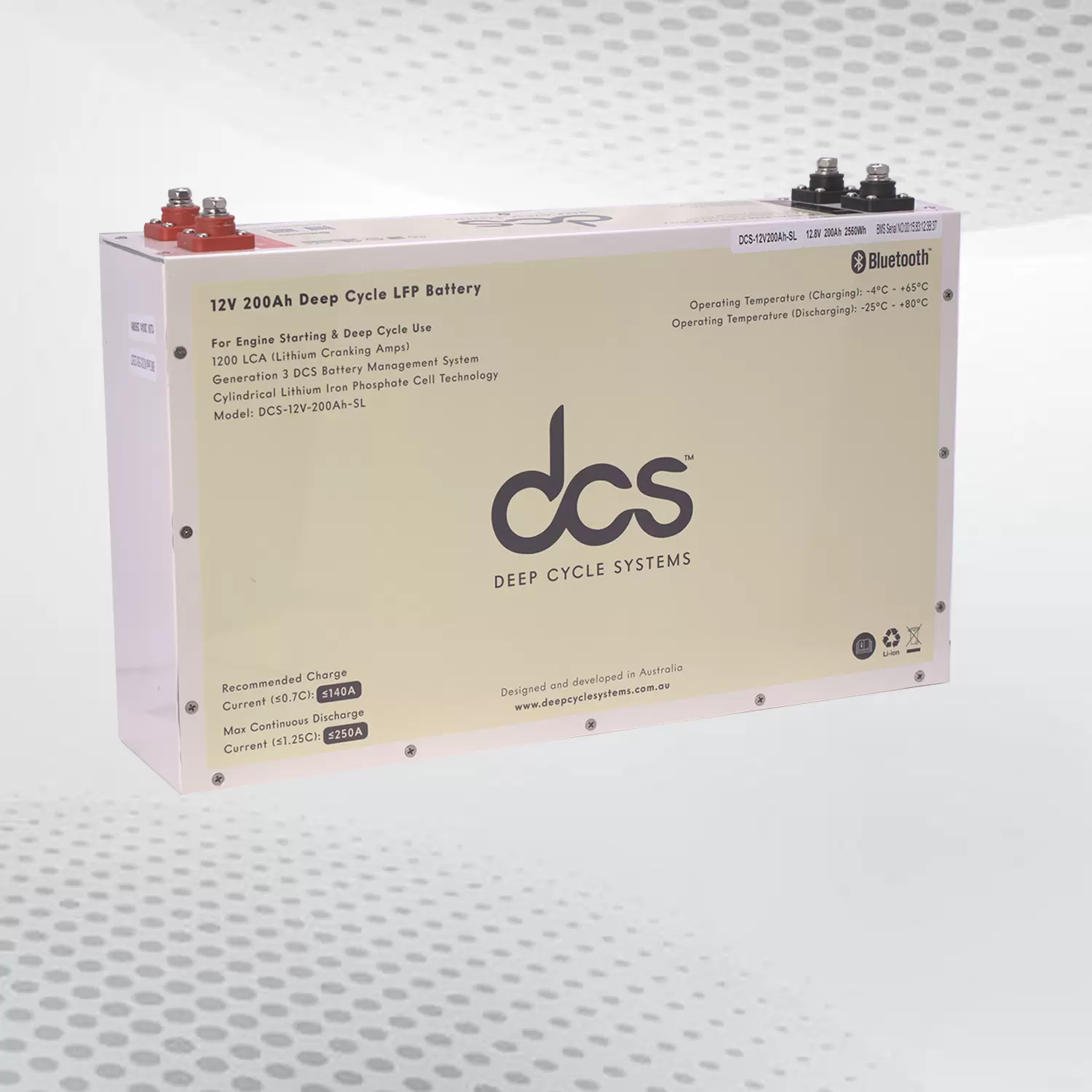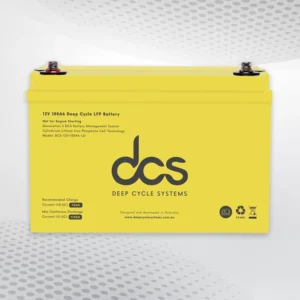Are you ready to power up your life with the latest battery technology? If so, you’ve landed in the right place! Welcome to “The Ultimate Guide to 12V Lithium-Ion Batteries,” where we delve into the heart of this revolutionary energy source, transforming everything from RV adventures and marine excursions to home backup systems and electric vehicles. Say goodbye to bulky lead-acid batteries and hello to sleek, efficient power solutions that are as versatile as they are powerful. In this guide, we’ll explore the remarkable features, undeniable benefits, and exciting applications of 12V lithium ion batteries—equipping you with all the knowledge you need to make informed decisions for your next project or adventure.
Introduction to 12V Lithium-Ion Batteries
Are you tired of dealing with heavy, bulky batteries that seem to lose their charge when you need them most? If so, it might be time to consider the rising star in the world of energy storage: 12V lithium-ion batteries. These compact powerhouses are transforming how we think about battery technology.
Imagine having a lightweight solution that delivers high performance and reliability across various applications—from recreational vehicles and marine use to renewable energy systems. With an impressive lifespan and quick charging capabilities, 12V lithium-ion batteries are becoming the go-to choice for many enthusiasts and professionals.
But what makes them so special? Let’s explore the features and benefits of these advanced batteries, explore their diverse applications in different industries, and uncover tips on choosing the right one for your needs. Whether you’re a DIY enthusiast or curious about modern battery technology, this guide illuminates everything you need to know about 12V lithium-ion batteries.
What Makes 12V Lithium-Ion Batteries Different from Other Battery Types?
12V lithium-ion batteries stand out due to their impressive energy density. They pack more power into a smaller, lighter package than traditional lead-acid or nickel-cadmium batteries. The chemistry behind lithium-ion technology allows for faster charging times and longer cycle life. Users often experience less downtime with these batteries, making them ideal for various applications.
Another key difference is the depth of discharge. Lithium-ion can safely discharge up to 80-90% of their capacity without significant damage. In contrast, lead-acid batteries typically recommend a maximum discharge of only 50%. Thermal management plays a crucial role, too. These batteries maintain performance across different temperatures better than many other types, which may struggle in extreme conditions.
Lastly, built-in Battery Management Systems (BMS) enhance safety by preventing overcharging and overheating, features not commonly found in every battery type. This technology elevates user confidence significantly.
Benefits of Using 200ah Slimline Lithium Battery
The 200ah slimline lithium battery is quickly gaining popularity in the market due to its numerous benefits, making it a superior choice to traditional lead-acid batteries. This section will explore the advantages of using a 200-ah slimline lithium battery and why it should be your go-to option for all your energy storage needs.
1.High Energy Density:
One of the most significant advantages of using a 200-ah slimline lithium battery is its high energy density. This means that it can store more energy in a smaller and lighter package than other battery types. As a result, these batteries are ideal for applications where space and weight are limited, such as RVs, boats, and electric vehicles.
2. Longer Lifespan:
Another major benefit of the 200-ah slimline lithium battery is its longer lifespan. These batteries have an average lifespan of over 3000 cycles, which is significantly higher than the lifespan of lead-acid batteries (typically around 500-800 cycles). This extended lifespan translates into lower maintenance costs and longer periods between replacements, making it a cost-effective investment in the long run.
3. Fast Charging:
Slimline lithium batteries have excellent charging capabilities, with some models reaching full charge in just one hour. This makes them perfect for applications where quick recharging times are necessary, such as off-grid solar systems or emergency backup power supplies.
4. Lightweight and Compact Design:
The compact design and lightweight nature of 200ah slimline lithium batteries make them highly versatile and easy to install in various settings. Their small size also means they take up less space than traditional lead-acid batteries while still providing the same power.
5. Low Self-Discharge Rate:
Unlike other rechargeable batteries that lose their charge over time when not in use, slimline lithium batteries have an extremely low self-discharge rate (less than 5% per month). This means you can store them longer without worrying about losing their charge, making them an excellent choice for backup power applications.
The benefits of using a 200-ah slimline lithium battery are endless. They offer superior performance, longer lifespan, faster charging times, and are environmentally friendly. So, if you’re looking for a reliable and efficient energy storage solution, the 200-ah slimline lithium battery is undoubtedly worth considering.
Applications of 12V Lithium-Ion Batteries in Various Industries
12V lithium-ion batteries are transforming various industries with their versatility and efficiency. In the automotive sector, they’re powering electric vehicles, offering longer ranges and quicker charging times than traditional lead-acid batteries.
In renewable energy systems, these batteries store solar or wind power for later use. Their lightweight design makes them ideal for off-grid applications where space is at a premium. Recreational applications also benefit significantly. RV enthusiasts rely on 12V lithium-ion batteries to supply reliable power without the weight penalty of older battery technologies.
Additionally, medical devices require dependable energy sources; hospitals utilize these batteries in portable equipment that must operate reliably under critical conditions. From consumer electronics like drones to industrial uses in forklifts, the adaptability of 12V lithium-ion technology continues to gain traction across diverse fields. Each application showcases how these advanced batteries enhance performance and sustainability.
Factors to Consider When Choosing a 200ah Lithium Battery Slimline
When it comes to choosing a 200ah lithium battery slimline, several factors need to be considered. These factors will not only impact the battery’s performance and lifespan but also determine whether it is suitable for your specific needs and applications.
1.Battery Chemistry:
The type of lithium-ion chemistry used in the battery can greatly affect its performance and safety. Some common types include Lithium Iron Phosphate (LiFePO4), Lithium Manganese Oxide (LiMnO2), Lithium Nickel Manganese Cobalt Oxide (NMC), and Lithium Cobalt Oxide (LCO). Each type has unique characteristics, such as energy density, voltage range, and thermal stability. Researching and choosing the right chemistry for your intended use is important.
2. Capacity:
A battery’s capacity or ampere-hour (Ah) rating refers to how much energy it can store. A higher Ah rating means that the battery can provide more power for longer periods before needing to be recharged. However, remember that higher-capacity batteries may also be physically larger and heavier.
3. Size/Dimensions:
Lithium batteries come in different sizes depending on their capacity and application. For instance, a 200-ah slimline battery will have different dimensions than a standard 200-ah battery. Therefore, checking the size specifications before making a purchase is crucial, especially if you have limited space or specific size requirements.
4. Weight:
Another important factor to consider is the battery’s weight. A lightweight battery is ideal for portable devices or when weight restrictions are critical, while a heavier one may be suitable for stationary applications where portability isn’t an issue.
5. Voltage/Power Output:
The voltage of a lithium-ion battery determines how much power it can deliver at any given time. Most 200-ah batteries have a nominal voltage of 12.8V, but some may have a higher voltage for more power output. Check the voltage requirements of your device or system before choosing a battery.
Considering these factors, you can choose a 200-ah lithium battery slimline that best suits your needs and ensures optimal performance for your devices or systems. It is always recommended to do thorough research and consult with experts before purchasing lithium-ion batteries.
How to Properly Maintain and Extend the Lifespan of Your 12V Lithium-Ion Battery
Proper maintenance of your 12V lithium-ion battery is crucial for longevity. Start by storing the battery in a cool, dry place. Extreme temperatures can significantly reduce its lifespan.
Check the battery’s charge level regularly. Keeping it within 20% to 80% capacity helps avoid stress on the cells. It’s advisable not to let it fully discharge frequently. Use a quality charger designed specifically for lithium-ion batteries. Overcharging can lead to overheating and damage, impacting performance over time.
Clean the terminals periodically to prevent corrosion. A simple wipe with a cloth will do wonders for conductivity. Lastly, look for any signs of swelling or leakage. If you notice anything unusual, it’s best to replace the battery immediately, as it could pose safety risks.
Common Myths and Misconceptions about 12V Lithium-Ion Batteries
Many people have misconceptions about 12V lithium-ion batteries. One common myth is that they are prone to exploding. However, these batteries have advanced safety features that minimize risks when used correctly.
Another misunderstanding is the belief that they can’t handle extreme temperatures. While it’s true that temperature extremes can affect performance, many modern lithium-ion batteries are designed for a wider operating range than traditional lead-acid ones.
Some users also think all lithium-ion batteries require complex maintenance routines. However, most models are virtually maintenance-free and only need occasional checks. Finally, there’s a notion that these batteries can’t be recycled. On the contrary, recycling programs exist specifically for lithium-ion technology, making it easier to dispose of them responsibly after their life cycle ends.
Future Developments and Advancements in 12V Lithium-Ion Battery Technology
The landscape of 12V lithium-ion battery technology is rapidly evolving. Innovations in materials science are paving the way for lighter, more efficient batteries that boast higher energy densities. This means longer run times and less frequent charging.
Researchers are exploring solid-state batteries as a revolutionary alternative to traditional designs. These could offer increased safety and performance by reducing flammability risks while enhancing durability.
Smart battery management systems are also emerging, allowing for better monitoring and control over usage patterns. Such advancements can lead to optimized charging cycles, prolonging overall battery life.
Finally, integration with renewable energy sources like solar panels is becoming commonplace. This synergy supports eco-friendly initiatives and makes off-grid applications increasingly viable. The future looks promising for those looking at 12V lithium-ion technologies as essential components in various sectors, from automotive to consumer electronics.
Conclusion
As the conversation around energy storage continues, 12V Lithium Ion batteries stand out for their versatility and efficiency. These power sources are not just another option; they embody various features that cater to various needs across industries. From renewable energy systems to recreational vehicles, their applications are vast. With remarkable benefits like lightweight design, high discharge rates, and longer lifespans compared to traditional lead-acid batteries, it’s clear why many consumers and businesses have made the switch. Maintaining performance over time while minimizing environmental impact adds an extra layer of appeal.
FAQs
1. What is a 12v lithium-ion battery?
A 12v lithium-ion battery is a rechargeable battery that contains lithium ions as the main source of energy storage. Its nominal voltage of 12 volts makes it suitable for various applications, such as electric vehicles, solar power systems, and portable electronic devices.
2. How long do 12v lithium ion batteries last?
The lifespan of a 12v lithium-ion battery depends on several factors, such as usage patterns, charging habits, and operating conditions. On average, these batteries can last for around 500-1000 charge cycles before experiencing any significant decrease in performance.
3. Are all 12v lithium-ion batteries the same?
No, not all 12v lithium-ion batteries are the same. Depending on their intended use, they can vary in capacity, chemistry, and construction. For example, automotive-grade lithium-ion batteries have different specifications than those used in consumer electronics.




